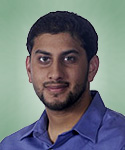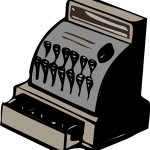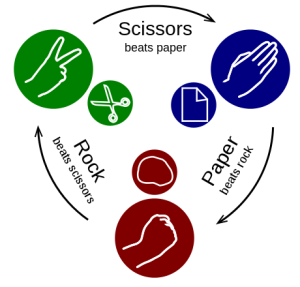June 24th, 2016
The Scam of Medicine
Ahmad Yousaf, MD

Ahmad Yousaf, MD, is the 2015-16 Ambulatory Chief Resident in Internal Medicine at Rutgers New Jersey Medical School.
“Oh no, she’s calling again.”
I look at the caller ID in the Chiefs’ office where I sit with one of my co-Chiefs. It is the Documentation Lady. Her call is as regular as BMs with C. diff: Profuse, excessive, associated with a lot of hot air and a bunch of crap, but inevitable. We play a quick game of rock/paper/scissors… I lose. I pick up the call. My voice changes to a sweet phone voice with a sprinkle of passive aggression and self-loathing for the coming 3 to 10 minutes of ‘issues.’
Resident A did not conclude his note with a proper attending ‘supervision’ requirement. In plain English, that means that the resident concluded his note with: “will discuss the case with attending on rounds,” instead of “the attending of record is Dr. X.” Seems like a small difference… because it is. Seems like minutia and a waste of time… again, because it is. BUT, the reality is, she is inarguably correct.
Resident B did not use the proper document title in the note that described the reason for the patient’s conversion from observation status to full admission (needs to stay longer). The resident did explain why the longer stay was needed… but selected the wrong note title. Does it affect patient care? No. Does it affect the resident’s medical education? No. Does it warrant a phone call from the dreaded Documentation Lady? Yes. Again, she’s right. She knows it. I know it. Everybody knows it.
So we do our derisory dance on the phone, and I express false frustration at the false incompetence of residents who are caring for sick and dying patients and who are being assessed on clerical skills. To beat a dead horse: The documentation lady is right. Her justification for calling me demanding corrections is also right.
This is an example of the additional skills a doctor MUST learn in residency to one day work efficiently (make money) for his or her hospital. You cannot bill an insurance company without exact documentation, because the insurance company has their own documentation hawks looking for reasons not to pay the hospital. And so the game continues.
 The problem is that I never knew I signed up for this game. Most doctors never knew that their lives would have as much to do with note-writing as patient care-giving. In the words of one of my attendings, “Medicine has become a scam.” There is so much administrative garbage to navigate in most nonacademic positions that doctors appear to be doing less and less doctoring — engaging in less eye contact with the people who need us and spending more intimate time with our computer screens. The harsh truth is that, here at the end of my training, my keyboard is more worn out than my stethoscope — and that scares me. I am a pragmatist, and I know that money makes the world spin and that patient notes are what makes the register ka-ching. But I didn’t know it would so significantly affect my ability to get to the bedside.
The problem is that I never knew I signed up for this game. Most doctors never knew that their lives would have as much to do with note-writing as patient care-giving. In the words of one of my attendings, “Medicine has become a scam.” There is so much administrative garbage to navigate in most nonacademic positions that doctors appear to be doing less and less doctoring — engaging in less eye contact with the people who need us and spending more intimate time with our computer screens. The harsh truth is that, here at the end of my training, my keyboard is more worn out than my stethoscope — and that scares me. I am a pragmatist, and I know that money makes the world spin and that patient notes are what makes the register ka-ching. But I didn’t know it would so significantly affect my ability to get to the bedside.
My phone call ends with a semi-sincere, “have a wonderful day, I am sure I will be hearing from you very soon!” I stare at my co-Chief across the table, and I can see the empathy in his eyes. We laugh at the absurdity, and then he speaks an absolute truth, “Man, I wish I was as good at being a doctor as she is at her job.”



Interesting points. I would not say it is the scam of medicine, as much as the reality of medicine. When you sign up to take the insurance money, you have to play by the insurance company’s rules.
What might actually be interesting from a teaching standpoint is to have a documentation hawk also look at the records from a medicolegal perspective. Is there a real differential diagnosis on the chart and does that differential diagnosis tie into the history of present illness, examination, lab studies, etc. For example, I’ve given up on shaking my head at the number of times that I see such things as hand numbness complaints with a diagnosis/assessment of carpal tunnel syndrome and an examination that does not document any examination of the median nerve.
Physical exam maneuvers for carpal tunnel syndrome have awful likelihood ratios.
Fair point. I was trying to provide a concrete example. I am an EMG fellowship neurologist, so I am well aware of physical examination issues for carpal tunnel. However, I do not know that only documenting a scheduled routine pelvic examination is unlikely to address the hand numbness that the OBGYN then feels compelled to record as carpal tunnel syndrome in the Assessment.
The smaller the domain of items or skills the greater chances of appearing to or actually knowing everything, or being correct all the time. All SPECIALISTS know this.
I was stopped at airport security with an orange. Had it had a sticker on it, or was “organic” I could have passed. They had to call the Fruit specialist in to examine my orange – he deferred to the Orange only guy – he’s a generalist and does all other fruits, but not oranges. Eventually my orange was not permitted to pass. I was warned. I don’t know if I’m on a no fly list yet.
Talk about paternalistic medicine. Folks considering the medical profession need to know about this.
I just wanted to make a point about staring at the computer screen while being with the patient part of this article. I never have done that and I never will. I am not saying everyone else should do the same thing I have done, but there is plenty of data now showing that is not good “doctoring”. There is a relationship between the doctor and his/her patient that will obviously not be whole if half the time of the doctor is spent looking at a computer screen. For years (we have had a dreaded EMR for about 7-8 years now, one of the first ones probably in Houston), I wrote notes after my clinic was over; I dreaded having “homework” at the end of the night, but I would not allow the freaking computer to come between the patient and myself. Now, I use a remote scribe service (and since I am not here advertising for them, I will not advertise for them!) and it works very well. I do not write notes anymore, hallelujah; someone else, sitting in India, writes my notes and I just review, correct and sign them; that’s all. If you are interested, look that up please, but it has helped my life a great deal.
As for the rest of the article, we are all very tired of the minutia that is medical records and language requirements of the medical practice, but I suspect it will get worse before it gets any better, so get used to it.
“Medicine has become a scam.” There is so much administrative garbage to navigate in most nonacademic positions that doctors appear to be doing less and less doctoring — engaging in less eye contact with the people who need us and spending more intimate time with our computer screens.”
This statement is so aptly correct. i spend half of my time, putting in my records onto the system.
I had learned that the documented electronic medical records, pick up the phrase and assign the CPT and ICD, for the patient encounter. i still wonder why the physicians don’t bill for the phone consultation, to the patient advocate i.e. nurse or floor clerk. the physician, ideally should document that there was after hour phone consultation and 95% of the billing will be paid by the insurance company.
in my medical practice as radiologist, the hospital provided the transcriptionist and the report filer. the radiology reports are electronically signed. Now in the modern days, there is transcribe software that will type the words as you speak. you have to use the keyboard to correct the typing errors, as the report is generated instantly.
It is very sad indeed. There is not enough money in the world to pay for clerical employees to meet the demands of payers, government, etc, so it falls to the doctors, which means less time for being doctors. And since our paychecks depend on it, we do it. However, we could say no, if we did so as a group. So many things we could have said no to over the many years of increasing nonsense, but we did not, because that means unions and strikes, so it will never happen here. We are like Dr. Seuss’s Thidwick, the Bighearted Moose, in whose antlers all the animals of the forest nest, making his head heavier and heavier. Finally when the hunters come after him, he’s forced to shed his antlers and cross the river. All those little nestlings end up hanging on the wall, but Thidwick is fine. When will we shed our antlers?
So most of the administrative complaints could be based on the EMR design. How about assigning patients to teams with initial role definition?
The problem comes from the fact that the EHR design was not based on the work flow in such a way that time can be spared by simple automating the execution.
I can totally understand and relate to the points raised here. I always wondered during my training that why is “documentation” and “paperwork” always so much more important than actual care given to the patient. In many instances I felt hospitals, nurses and especially case managers don’t give a living crap about the patient. They just care about the documentation and paper work. Doctors on the other hand try to care less about the paper work and dedicate more work towards the patient but keep getting pegged back with unnecessary nuisances by all of the above mentioned people. I personally believe the insurance system in US is an elaborate fraud specifically designed to make doctors busy with paper work and also other garbage nuisance so that the work gets so complex that “mistakes” will inevitably happen and they can deny payments. Then they can “audit” the same doctors and then say you “over billed” because you don’t meet the documentation criteria for that level of billing (regardless of that work was actually performed) and then they can audit the hospital and doctors and then fine on top of the 17 cents to the dollar paid by Medcaire and also interest payments for notes written 3 years ago.
This elaborate fraud started in early 90s and is getting tougher and tougher. Not only its a massive waste of time and EHR and further documentation has not made the care any better but has made the doctors more exhausted and less time for their family. I guess nobody cares right????
Great read!
The new Walden is to leave your cell phone at home.